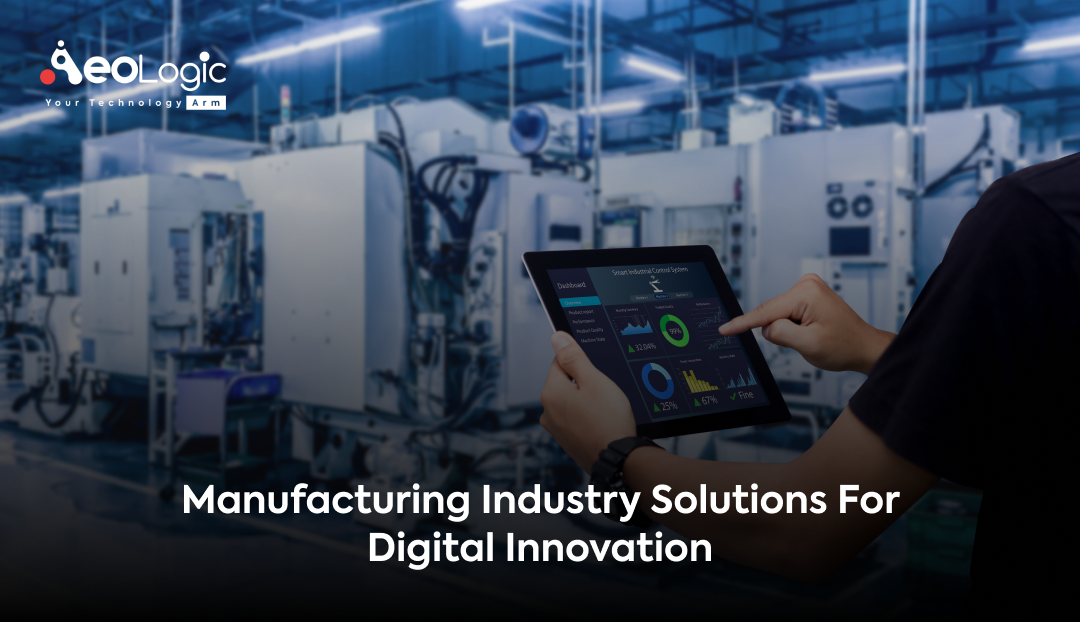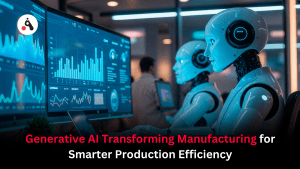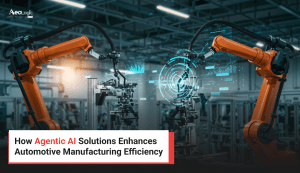After the COVID- 19 epidemic, digital innovation is accelerating in nearly every assiduity and manufacturing is no exception. According to the 2021 Digital Transformation Assessment study conducted by IBM and The Manufacturer, 67 percent of manufacturers have accelerated digital systems after COVID- 19. We explore how manufacturing industry solutions are incorporating digital innovation with crucial technologies and trends.
Also read: Innovative Solutions in Manufacturing Industry
What Does Digital Transformation Mean for Manufacturing Industry Solutions?
Digital transformation in manufacturing involves integrating digital technologies into processes and products to increase manufacturing effectiveness and quality. Digital transformation in manufacturing focuses on:
- Perfecting functional effectiveness and reducing costs
- Thus, ensuring the quality of cultivated products
- Responding faster to the changing request conditions and client demands
Why is Digital Innovation in Manufacturing Industry Solutions is Important Now?
Client prospects and increased competition are the main enablers of digital transformation in manufacturing as with other diligence. By using digital technologies, manufacturers can ameliorate speed and effectiveness, increase product, drop costs, and give a better client experience. COVID- 19 has also demonstrated the significance of embracing digital innovation in manufacturing industry solutions. Throughout the epidemic, manufacturers faced functional challenges that illuminated the sins in their being businesses. For case, having real- time data about the supply chain could enable manufacturers to respond faster to supply dearths and demand spikes during the pandemic.
What are the Crucial Technologies and Trends Enabling Digital Innovation in Manufacturing?
Artificial intelligence, machine learning, and advanced analytical ways are involved in utmost of the digital transformation operations in manufacturing. Specific technologies and trends include:
Hardware & Software
Autonomous Systems
Autonomous systems are systems that work data about the surrounding atmosphere from detectors (e.g. light detector, audio detector, cameras, infrared, radar, ultrasound, etc.). In order to dissect real- time situations, acclimatize, and reply without human intervention. Some independent systems in manufacturing include:
- Autonomous robots
- Autonomous storehouse and plant systems
- Drones
- Autonomous vehicles
Robotics
Manufacturing robots automate repetitious tasks, reduce the periphery of error. As well as free up human workers’ time for further productive tasks. AI- enabled robots can train themselves to ameliorate their performance. Furthermore, these robots can be completely independent or automate some tasks while working safely alongside human workers. On the other hand, the alternate type of artificial robots are called cooperative robots (cobots).
IIoT
Industrial Internet of things (IIoT) is a sub-category of the Internet of things (IoT) that focuses on operations in artificial sectors. Moreover, IIoT technology is changing the manufacturing industry solutions. Thus, by enabling businesses to cover the product process in real- time and helping them to make further data- driven opinions with manufacturing analytics. McKinsey predicts that IIoT will be a $ 500 billion market by 2025.
Also read: Industrial IoT Solutions for Digital Manufacturing
Benefits of IIoT technologies include:
- Predictive maintenance
- Energy effectiveness of individual machines
- Demand forecasting
- Supply chain visibility
3D Printing
3D printing technology, also called cumulative manufacturing. Therefore, helps businesses to produce complex objects cheaper and briskly. Subsequently, product prototyping is one of the most common use cases of 3D printing in manufacturing. However, operations aren’t limited to it. In fact, traditional manufacturing is cost-effective in the case of mass product but 3D printing is ideal if a product isn’t going to be produced in large volumes. Also, 3D printing offers a cost-effective way to produce customized products or product parts for consumer goods. Therefore, 3D printing can use a variety of materials including metal.
Augmented and Virtual Reality
According to PwC, augmented reality and virtual reality (AR/ VR) technologies have the eventuality to add $ 1.5 trillion to the global frugality by 2030. Operations of AR/ VR in manufacturing include:
- Fast prototyping by enabling manufacturers to see how a product would look without physically creating it.
- Inventory operation involves processes that can not be automated 100 percent. AR/ VR- enabled devices can instruct human workers in a storehouse and give information about particulars on shelves.
- Maintenance: Different machines bear different maintenance processes and having maintenance instructions accessible in your spectacles makes maintenance significantly easier.
Software
RPA and Intelligent robotization Robotic process robotization (RPA) and intelligent robotization in manufacturing can drop the need for human hindrance in rule- grounded and repetitious tasks and reduce process errors. Also, the processes that can profit from RPA tools include:
- Supply chain optimization
- Tab processing
- Inventory operation
- Manufacturing data operation
- Order fulfillment
A digital twin is a digital representation of physical realities similar as products, devices, or systems that enable businesses to make model- driven opinions. Digital twins have a wide range of operations in manufacturing including:
- Product development
- Design customization
- Shop floor performance enhancement
- Predictive maintenance
- Logistics optimization
Another operation of digital twins is digital twin of an organization (DTO) which is the virtual representation of the entire business rather of a specific product. Moreover, DTOs enables businesses to infer perceptivity about:
- Previous performance
- Business objectives
- Business processes
- Performance KPI pointers with target situations
- Business models
- Detailed sale- position situational process analysis
Also read: Benefits of Digital Solutions for the Manufacturing Industry
Final Words
Take traditional manufacturing processes, add in new technologies. And also inoculate it in every step of the operation. And you have digital innovation in manufacturing industry solutions. Furthermore, digital transformation drives advanced quality control, makes huge effectiveness earnings, and creates a better product with reduced costs and superior environmental controls. Therefore, it is changing every aspect of manufacturing. Thus, creating huge advantages over their competition and the changing world.










